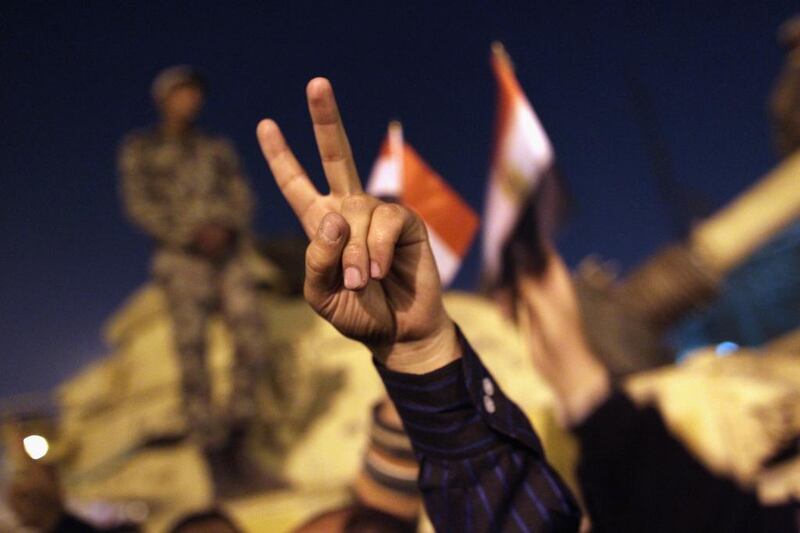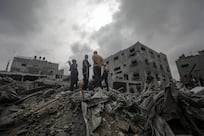If, in 2011, the West’s view of the Arab world was grounded in optimism and exhilaration, it’s an entirely different story in 2016. Five years ago, there was still the sense that something was afoot, that the region could change into something better. There was the promise of a region based more on respect for fundamental rights, better governance and freedom – rather than one where these elements were constantly sacrificed to nepotism, autocracy and the cynical exploitation of concerns around security.
Five years on, the situation looks very different.
Now it is far more about security than ever before. It used to be that different Arab leaders would privately and publicly argue that they were better than the alternative of Islamism and that would be enough to get any concerns around fundamental rights of the table for discussion. Today, the equation is the same but different: many simply argue that the alternative to their rule is chaos. And, of course, no one wants chaos – and so the cycle continues.
But the region is not simply a place where one makes short-term exchanges between security concerns and everything else. It is a catastrophic mistake to look at the region in those terms alone.
The region is in a state of flux and the outside world needs to be more, not less, engaged with it, as it goes through an incredibly critical part of its modern history.
Certain aspects of the current era in the Arab world relate to simply going through the after shocks of traumatic events. The effects of colonialism and post-colonialist states ought not to be underestimated – and the trauma of that still defines much of what we see today.
There is good news in that it is being worked through. The bad news is that the damage that may yet come to pass is still likely to be rather significant. The world needs to be aware of that – but not simply build resilience at home, which is what many, particularly in the West, seem concerned with.
Rather, we need to be also keenly aware of the importance of helping resilience in the countries undergoing tumultuous periods in this region. Their success will be the success of many far beyond the region, particularly in Europe – but their failures will also have many dire repercussions as well, far beyond their borders.
But other things are happening and it is easy to lose sight of them as we focus almost exclusively on security.
Many countries have the problem of increasingly high birth rates, which can be harnessed, but only if sufficient opportunities are provided for young people coming into their own.
Yet, in other parts of the Arab world, particularly in the Gulf, questions around indigenous reliance are only beginning to be asked. The demographic question is very real within the region – and in very different ways.
There is also another, slowly shifting reality – and that is energy.
For so long the region, particularly the Gulf, has been the major source of fuel for many countries around the world, particularly in the West – but there are signs, if still in their infancy, of leaders in the Gulf recognising that will not always be the case.
At some point, the oil will run out and at some point probably long before that, the West and others may rely on other, cheaper sources of energy. On the one hand, there are many Arab countries that are in dire need of resources, and on the other, there are those that know they have to move past certain types of economies dependent on oil.
There is a temptation to view the region through a very narrow lens: one that makes the entire region about ISIL or security concerns.
But the region has never been like that – it has always had a complex, complicated reality. It is not that so many in the West were wrong to hope for a more sustainable, prosperous and free future for the people of the region – it’s that they escaped the need to come to a well thought out vision for assisting the region to get there.
Five years on, arguably, far too few have realised that original error, and persist in perpetuating it. The people of this region warrant better governance, and far more respect of fundamental rights, but they also need rulers inside the region, and friends from outside of it, to recognise the key, critical structural issues that are going to define this next generation of Arabs. And, as yet, that doesn’t seem entirely forthcoming. But a vision, nevertheless, is needed – and preferably before some kind of unexpected eruption on the ground in the region takes place. Alas, political establishments are seldom good at thinking that far ahead – but thinking far ahead is no longer an optional luxury. It’s a necessity.
Dr HA Hellyer is an associate fellow at the Royal United Services Institute in London and a non-resident senior fellow at the Rafik Hariri Center for the Middle East at the Atlantic Council in Washington, DC
On Twitter: @hahellyer





